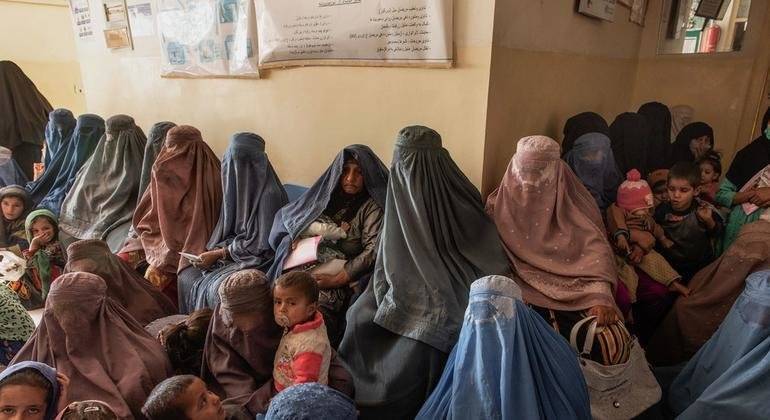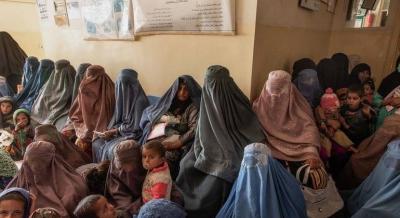The Taliban authorities emphasized today, Saturday, that demands concerning women's rights are an internal matter that must be resolved in Afghanistan, on the eve of an international meeting in Qatar that the United Nations presents as a significant step in the process of participation, while human rights groups condemn the marginalization of Afghan women. Since seizing power in August 2021, the Taliban has implemented its strict interpretation of Sharia, particularly tightening restrictions on women, while the United Nations denounces policies that perpetuate discrimination and "gender-based segregation." High schools and universities have been closed to women, as well as parks, gyms, and other facilities.
The Taliban government will send a delegation to the third round of talks starting in Qatar on Sunday. Human rights groups have criticized the exclusion of Afghan women from key meetings and the omission of human rights issues from the agenda. The government spokesperson, Zabihullah Mujahid, stated at a press conference in Kabul on the eve of the latest talks that the Taliban authorities "acknowledge the issues related to women." Mujahid, who will head the delegation, emphasized that "these issues are Afghanistan's issues," explaining, "We are working to find a logical way toward solutions within Afghanistan so that our country does not, God forbid, fall into conflict and disputes again." He noted that "the Taliban government will represent all of Afghanistan in the meetings, and given its authority, it should be the sole representative of Afghans at the table." He added that "if Afghans participate through multiple channels, it means we are still fragmented, and our nation is still not united."
The Taliban authorities were excluded from the meeting held on May 1, 2023, and subsequently refused to participate in the second meeting in February unless they were the only representatives of the country. This condition has been met in this round. The United Nations delegations and international delegations will have the opportunity to meet with civil society representatives, including women's rights groups, on July 2 after the main meetings conclude. Mujahid reiterated that the Taliban government seeks to establish positive relations with all countries, but pointed out that "no significant or major discussions will take place" in Doha and that the meeting represents an opportunity to exchange views, especially with Western countries. The agenda includes combating drugs and economic issues, which are key topics for the authorities in the impoverished state. According to Mujahid, "We have obstacles to economic development that must be removed," stressing that "if the economy is doing well, all other issues can be resolved."




